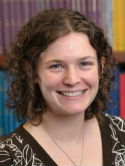Alcohol consumption and cigarette smoking in combination: A predictor of contralateral breast cancer risk in the WECARE study Journal Article
| Authors: | Knight, J. A.; Fan, J.; Malone, K. E.; John, E. M.; Lynch, C. F.; Langballe, R.; Bernstein, L.; Shore, R. E.; Brooks, J. D.; Reiner, A. S.; Woods, M.; Liang, X.; Bernstein, J. L.; on behalf of the Wecare Study Collaborative Group |
| Contributors: | Capanu, M.; Orlow, I.; Robson, M. |
| Article Title: | Alcohol consumption and cigarette smoking in combination: A predictor of contralateral breast cancer risk in the WECARE study |
| Abstract: | Alcohol drinking and, to a lesser extent, cigarette smoking are risk factors for a first primary breast cancer. Information on these behaviours at diagnosis may contribute to risk prediction of contralateral breast cancer (CBC) and they are potentially modifiable. The WECARE Study is a large population-based case-control study of women with breast cancer where cases (N = 1,521) had asynchronous CBC and controls (N = 2,212), matched on survival time and other factors, had unilateral breast cancer (UBC). Using multivariable conditional logistic regression to estimate rate ratios (RR) and 95% confidence intervals (CI), we examined the risk of CBC in relation to drinking and smoking history at and following first diagnosis. We adjusted for treatment, disease characteristics and other factors. There was some evidence for an association between CBC risk and current drinking or current smoking at the time of first breast cancer diagnosis, but the increased risk occurred primarily among women exposed to both (RR = 1.62, 95% CI 1.24–2.11). CBC risk was also elevated in women who both smoked and drank alcohol after diagnosis (RR = 1.54, 95% CI 1.18–1.99). In the subset of women with detailed information on amount consumed, smoking an average of ≥10 cigarettes per day following diagnosis was also associated with increased CBC risk (RR = 1.50, 95% CI 1.08–2.08; p-trend = 0.03). Among women with a diagnosis of breast cancer, information on current drinking and smoking could contribute to the prediction of CBC risk. Women who both drink and smoke may represent a group who merit targeted lifestyle intervention to modify their risk of CBC. © 2017 UICC |
| Keywords: | adult; controlled study; aged; major clinical study; cancer risk; demography; disease association; breast cancer; smoking; survival time; alcohol; alcohol consumption; disease predisposition; population based case control study; health assessment questionnaire; contralateral breast cancer; case-control study; unilateral breast cancer; human; female; priority journal; article |
| Journal Title: | International Journal of Cancer |
| Volume: | 141 |
| Issue: | 5 |
| ISSN: | 0020-7136 |
| Publisher: | John Wiley & Sons |
| Date Published: | 2017-09-01 |
| Start Page: | 916 |
| End Page: | 924 |
| Language: | English |
| DOI: | 10.1002/ijc.30791 |
| PROVIDER: | scopus |
| PMCID: | PMC5518236 |
| PUBMED: | 28524234 |
| DOI/URL: | |
| Notes: | Article -- Export Date: 1 August 2017 -- Source: Scopus |
Altmetric
Citation Impact
BMJ Impact Analytics
Related MSK Work










